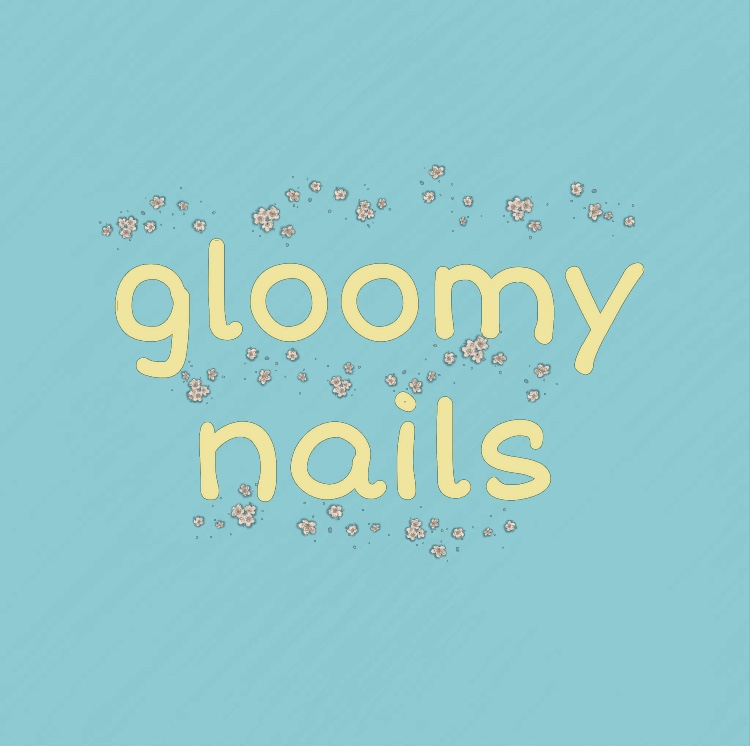How it's Made: Nail Polish Edition
- Bailey Renee

- Apr 29, 2020
- 3 min read
Disclaimer: Please note that I am neither a scientist nor a medical professional. I research topics that interest me, using online sources, and I write articles or research papers about them. Your discretion is advised.
Have you ever wondered what exactly your nail polish is made of? Likely, many chemicals that only scientists would understand. Today, I’ll be your science teacher, and break down some of the chemicals and agents that might be in your nail polish collection!

The Main Ingredients
The four main ingredients in all nail polishes is polymers, plasticizers, pigments, and solvents. Bleh--a lot of sciencey words there. Let’s break these guys down a little more.
Polymers
Comprised of Tosylamide/Formaldehyde Resin (TSF Resin) and Nitrocellulose.
These compounds work together to make the hard, glossy finish.
Nitrocellulose
Nitrocellulose is also what keeps your polish water repellent, and stay on for a long period of time.
Nitrocellulose is what makes nail polish flammable. It is also used in dynamite.
It is made of liquid mixed with tiny cotton fibers. During the manufacturing process, the fibers are ground into microscopic pieces so that they don't have to be removed from the product.
It's also the main ingredient in movie film. Many early 20th century nail polishes used scrapped movie film as the raw material for nail polishes. What movie are you wearing?
Plasticizers
These make the polish both flexible and durable.
Just like with your nails, you want the nail varnish to be flexible rather than hard and brittle.
This prevents the polish from chipping, and your nails from breaking.
The main plasticizer that’s used is Dibutyl Phthalate (DBP)
This ingredient is controversial on whether or not it is safe for use in nail polish.
It was banned for usage in the European Union.
Many American Manufacturers have removed it from their formulations.
Pigments
Adds color to the base.
Some of the pigments that are used:
Mica
Gives shimmery appearance
Silica
A thickening agent that reduces the glossy finish
Titanium Dioxide
Used to increase the opacity of the polish
Often used in white nail polish
Bismuth Oxychloride
Special effect pigment that adds pearlescence
Citric Acid
Stabilizer used to control pigmentation
Pigments can also come in color + number form (ex: Red 40)
Solvents
Make the polish spreadable.
Act as drying agents.
Many alcohols and acetates are used.
Ethyl Alcohol
Dissolves other ingredients
Ethyl Acetate
Made of vinegar and ethanol
Evaporates the fastest
Isopropyl Alcohol
Prevents the explosion of Nitrocellulose
Propyl Acetate
Mix of propene and propane
Evaporates the second fastest
Butyl Acetate
Produced via fermentation
Evaporates the slowest
Toluene
Controversial
Many feel it can cause both liver and nerve damage.
Removed from many formulas.
Dimethicone
Drying agent
Main ingredient in nail polish driers.
Harmful Ingredients
The U.S. city of San Francisco enacted a city ordinance, publicly identifying establishments that use nail polishes free of the "toxic trio" of dibutyl phthalate, toluene, and formaldehyde.
Dibutyl Phthalate, Toluene, and Formaldehyde
Considered to be known carcinogens or “cancer causing” ingredients found in nail varnish.
Other harmful ingredients include:
Formaldehyde Resin
Camphor
TPHP
Xylene
How To Avoid Harmful Ingredients
Choose a nail polish that is considered “3-free”, “5-free”, or “7-free” is even better.
This means the polish is free of the three, five, or seven harmful ingredients.
Choose eco-friendly nail polish brands
Cruelty-free is key
Some suggested nail polish brands (These brands are free of these chemicals and are considered nontoxic. I haven’t tried any of these brands before. Please also note that not all are 7 or 5 free.):
Zoya
Suncoat
Piggy Plant
Honeybee Gardens
RGB
Sheswai
LVX
Sundays Studio
Brands that I have tried:
Holo Taco
OPI
China Glaze
That’s it for How it’s Made: Nail Polish Edition! Let me know if I should continue this series by leaving a like or comment. Be sure to check out my nail instagram (@gloomy.nails) only to realize I’m only seventeen years old (and to check out my sick nail art pics). If you wish to support me in other ways (thank you in advanced) check out my Pinterest (@gloomynails) with no dot that time. Finally, thank you all so much for reading! I really enjoy your support especially during this time of crisis. Have a colorful day loves! 🌈
Works Cited
Alessandro, Nicole. “7 Nontoxic Nail Polish Brands.” EcoWatch, EcoWatch, 1 Apr. 2019, www.ecowatch.com/nontoxic-nail-polish-1881863487.html.
“Brief History of Nail Polish.” Koblins Pharmacy, 26 June 2013, www.koblins.com/brief-history-of-nail-polish/.
Ella Mila. “5 Toxic Chemicals to Avoid in Nail Polish.” Ella Mila, www.ellamila.com/blogs/in-the-news/115515716-5-toxic-chemicals-to-avoid-in-nail-polish.
Lane, Taylor. “The Biggest Differences Between Orly & China Glaze Nail Polishes, Explained.” The Zoe Report, The Zoe Report, 7 Aug. 2019, www.thezoereport.com/p/the-orly-vs-china-glaze-nail-polish-difference-is-this-experts-say-18196467.
“Nail Polish.” How Products Are Made, www.madehow.com/Volume-1/Nail-Polish.html.
“Nail Polish.” Wikipedia, Wikimedia Foundation, 26 Apr. 2020, en.wikipedia.org/wiki/Nail_polish.
Staff, NLS. “Secret Ingredient: Nail Polish.” NAILS Magazine, 19 May 2011, www.nailsmag.com/386923/secret-ingredient-nail-polish.
Winkler, Sarah. “Nail Polish 101.” HowStuffWorks, HowStuffWorks, 20 Oct. 2009, health.howstuffworks.com/skin-care/nail-care/tips/nail-polish1.htm.


Comments